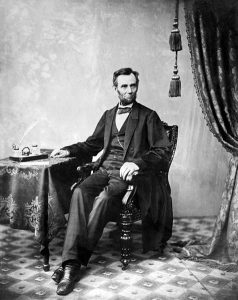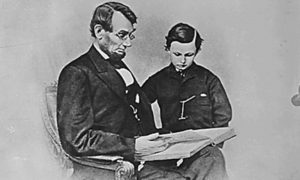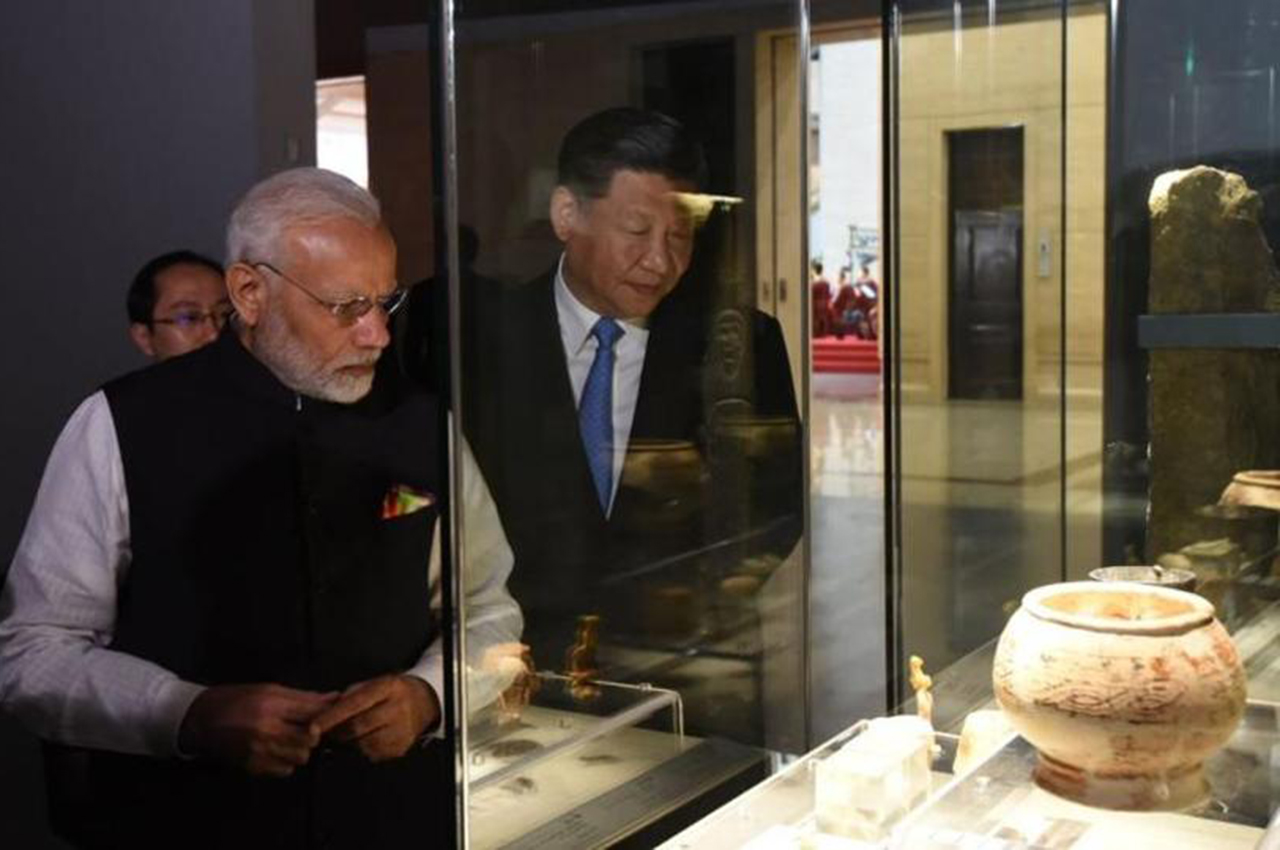
One man who clearly outperforms all others and manages to draw the attention and interest of all, till date, – Abraham Lincoln! Also popularly known as ‘Honest Abe’ and ‘Father Abraham’, Lincoln was, definitely, one of the most influential and greatest Presidents’ that America has ever witnessed. Abraham Lincoln was the 16th President of the United States. He was born in Hodgenville, Kentucky, United States, on February 12, 1809.
Lincoln’s father Thomas Lincoln was an illiterate man, a wandering farmer of Kentucky. Lincoln’s family moved to southern Indiana after Lincoln’s mother Nancy Lincoln died, he was just seven years old then in 1816. Rising from a modest and humble beginning, it was his sheer determination and honest effort that led him to the nation’s highest office.
 Lincoln’s family financial condition was not so strong; therefore he had to support his family financially. Lincoln’s formal schooling was limited to three short periods in local schools. His stepmother encouraged him to read books. A few years later moved away from his family and settled in the New Salem, Illinois, where he started working as a shopkeeper and later as a postmaster. Later Lincoln became respected on the legal circuit and he gained the nickname ‘Honest Abe.’ Lincoln met Mary Todd in Springfield, Illinois where he was active as a lawyer. Both got married in 1842 and had four sons. Only one son of Mary and Lincoln lived till adulthood.
Lincoln’s family financial condition was not so strong; therefore he had to support his family financially. Lincoln’s formal schooling was limited to three short periods in local schools. His stepmother encouraged him to read books. A few years later moved away from his family and settled in the New Salem, Illinois, where he started working as a shopkeeper and later as a postmaster. Later Lincoln became respected on the legal circuit and he gained the nickname ‘Honest Abe.’ Lincoln met Mary Todd in Springfield, Illinois where he was active as a lawyer. Both got married in 1842 and had four sons. Only one son of Mary and Lincoln lived till adulthood.
After few years Lincoln involved himself in local politics by supporting the Whig Party. He won the election of the Illinois state legislature in 1834. As a lawyer, Abraham established ability for rapid thinking and oratory. His interest in public issues encouraged him to stand for public office. In 1847, he was elected to the House of Representatives for Illinois and served from 1847-49. Unlike other leaders of Whig Party, Lincoln did not favor the spread of slavery to the territories. He had an outstanding ideology of expanding the United States’ commerce. As a congressman, Lincoln was not liked by many Illinois voters for his strong standpoint against the U.S. war with Mexico.
People conspired to push him back into national politics, nevertheless: Douglas, a foremost Democrat in Congress, had struggled through the way of the Kansas-Nebraska Act (1854), which declared that the voters of each territory, rather than the federal government, had the right to decide whether the territory should be slave or free. In 1854, Lincoln had denounced slavery and its extension and called the institution a violation of the most basic doctrines of the Declaration of Independence.
The reputation he achieved on the campaign trail and speeches on the East coast caused him to come forward as a candidate for the Republican nominee for President in 1860. Lincoln was an outsider as he did not have much experience than other candidates, still, after finishing second on the first ballot he went on to become unexpectedly nominated. Lincoln’s three rival candidates- Edward Bates, Salmon P. Chase, and William H. Seward were national figures: two as senators and state governors, the other an elder statesman. Lincoln had twice run for the Senate but was defeated.
After a stiff fight and a disruptive campaign of 1860, Lincoln was elected the first Republican President of the United States. Though, he won only two of 996 counties in all the Southern states, he received around 500,000 more votes than his nearest rival, the Democrat Stephen A. Douglas. Lincoln served as President from March 1861 until his assassination in April 1865. Lincoln’s support came completely from the North and West of the country. The south strongly disagreed with Lincoln’s stand and ideology upon the slavery.









